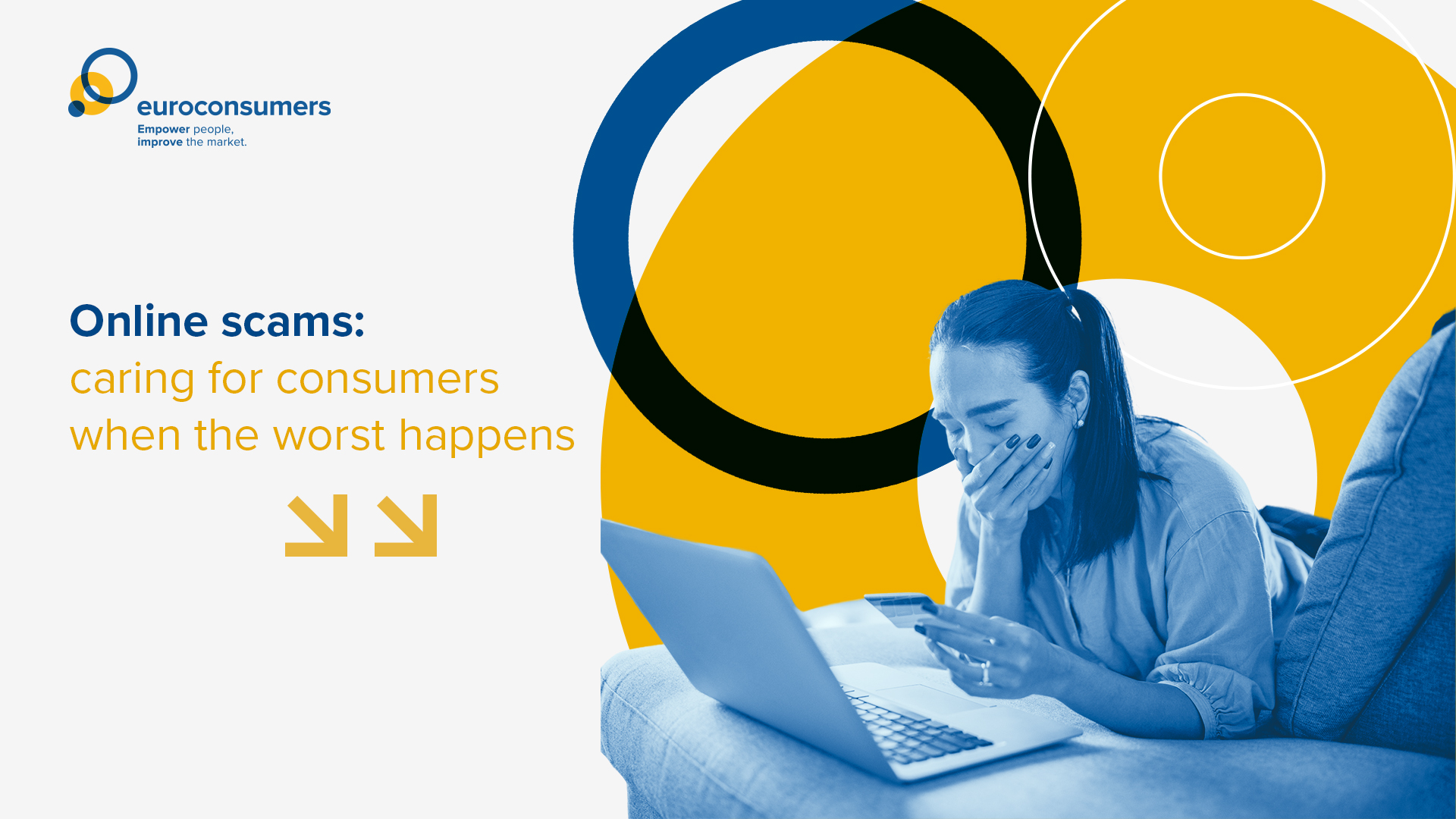Online scams: caring for consumers when the worst happens

This summer, Euroconsumers co-hosted the 2024 Global Anti Scams Summit in Brussels, making sure that the reality of consumers’ scam experience was top of everyone’s minds.
The Global Anti Scam Alliance estimates that around a quarter of people across the world lost money to scams or identity theft last year, leading to losses of over a trillion dollars.
But behind these eye watering financial figures, are unquantified levels of emotional and mental harm, and a redress system that can compound the pain of being defrauded.
So what happens next to those people once the fraud has been discovered? How are consumers treated by banks, police or other services? What did organisations in the scam ecosystem do to prevent the scam in the first place?
Ask not what consumers can do, but what you can do for consumers
Euroconsumers wants to flip the script on scams. Our half day workshop started with a call to understand that raising consumer awareness and education was not enough to stem the tide of online scams. We then challenged companies and institutions to do more for consumers.
Doing more includes joined up and effective strategies to prevent scams ever reaching consumers. And it includes supporting those who are experiencing the painful aftermath of a scam, creating better pathways to redress, reimbursement and justice.
In the session, we heard how institutions, banks and platforms are working to prevent fraud and scams reaching consumers:
- Large online platforms are organically embedding information into the customer journey to make reporting more obvious and easy.
- Cryptocurrency experts are training authorities on how to track and stop payments once people have been scammed.
- Payment providers are focusing on the behaviour of scam accounts, and not just on the behaviour of consumers to increase protection.
- Card providers can use patterns in mobile phone registrations and bank account transactions to determine likelihood these are being used by scammers. This can then help sharpen up and target consumer interventions and break the spell that a scammer may have over an individual.
When the worst happens: what do consumers face after a scam?
However, everyone agreed that when a scam does happen the system isn’t up to the job of properly supporting victims.
Every stage in the aftermath of reporting a scam throws up challenges for victims. For example, the police may not take it as seriously as other crimes, or be uncertain about their jurisdiction if it has an international element, which most do.
We heard of banks immediately telling a person that there’s nothing they can do. And we heard how the redress system itself is currently struggling to interpret the concept of ‘gross negligence’ on the part of a consumer given the sophistication of modern online scams.
In a world of AI and fast moving, ever-morphing scams, how can we gain an appropriate balance of effective fraud detection in financial institutions versus expectations of how consumers should act?
Is the law fit for the challenge of sophisticated scams?
UK consumer group Which? explained new changes to rules in the UK on ‘authorised push payment scams’ – where a fraudster convinces a person they are a trusted friend, relative or institution.
These changes have shifted the onus back onto payment services and banks to be more diligent, by splitting liability for losses between the sending bank and the receiving bank, and acknowledging how vulnerable consumers are in the current scam ecosystem.
The changes in the UK recognise that advanced techniques for manipulating consumer decision making are now a common feature of scams and are increasingly difficult for people to guard against by themselves.
The audience were also briefed on key elements of the parts of EU Payment Services Directive and Payment Services Regulation discussions which are considering similar issues to the UK. Discussions are ongoing as to how to balance consumer responsibility with payment service organizations’ preventative responsibilities.
Throughout the workshop, it became clear that the system must change to one that can respond to consumers who have been defrauded in appropriate, sensitive and fair ways.
Change needed in victim aftercare for emotional and mental health harm
One area where progress was urgently needed was victim aftercare, and in particular understanding the significance of the mental health impact of scams on people.
Victims can feel intense shame and embarrassment, which can prevent them reporting and talking about their experience and therefore getting support. They also may start to question their judgment and the extent to which they were responsible for the crime. This too will negatively affect a person’s sense of worth and confidence.
Victims often feel unheard, misunderstood, uncared for or blamed. Ayleen Charlotte, an anti-scam campaigner whose story was featured in Netflix’s Tinder Swindler documentary spoke at the workshop and shared some of the responses she received when she reported her fraud:

“A fraud specialist from one of the largest banks in The Netherlands said to me 'What do you expect from us? You transferred the money yourself.’ Staff at the financial security department of a loan company said ‘Why don't you sell your house, then you will be rid of all of your debts.’ This is not what you want to hear when you are crying for help.”
Having lost thousands to a long term romance scam, these responses made her feel that she was being victimized twice over.
She wants stakeholders to do much much more to support victims of scams and Euroconsumers agrees. Stakeholders must have a plan in place to respond to and victims of scams that recognises the enormity of the emotional pain and mental health distress that the crime can cause.
At the Euroconsumers Forum 2024 we will explore this gaping hole in consumer scam aftercare and call for practical, cross-border action to make sure people who have experienced such a cruel crime get the support they deserve.

